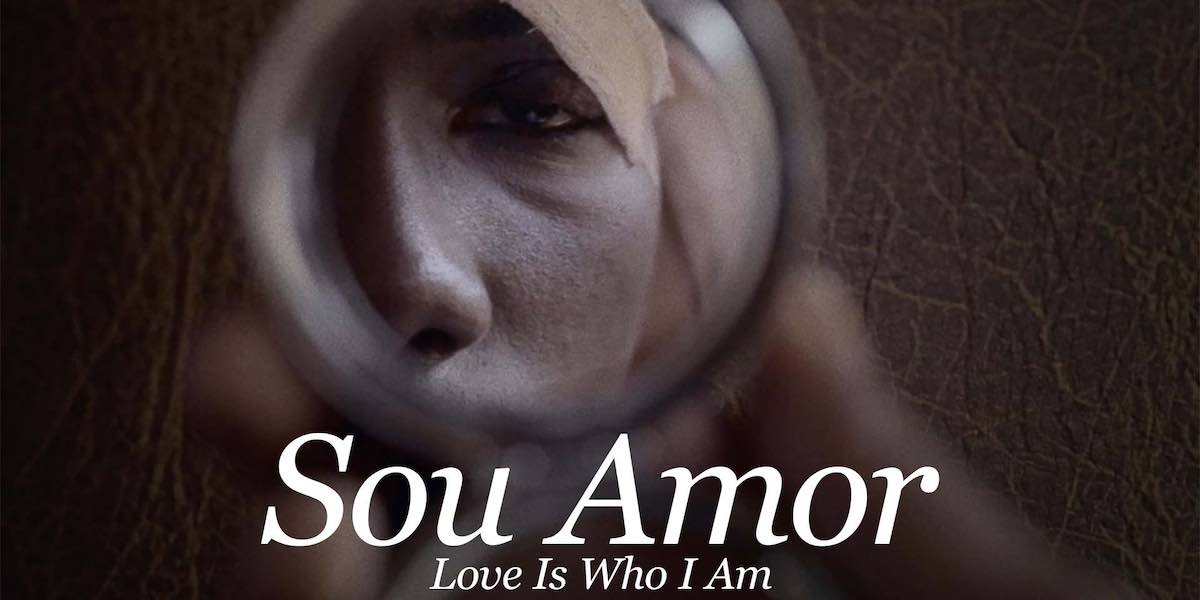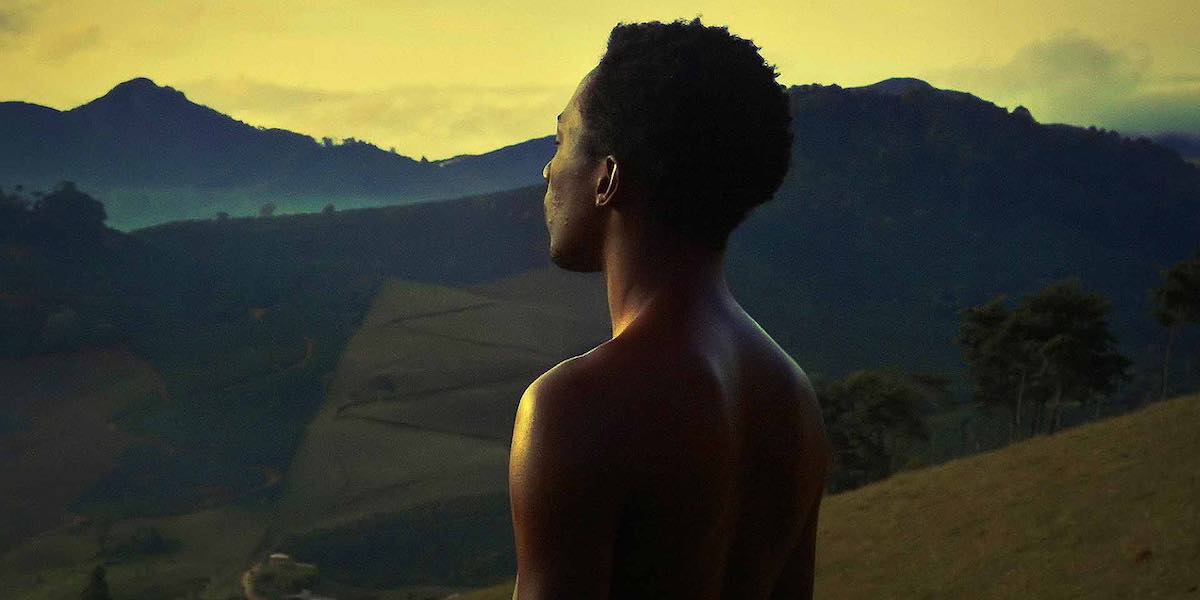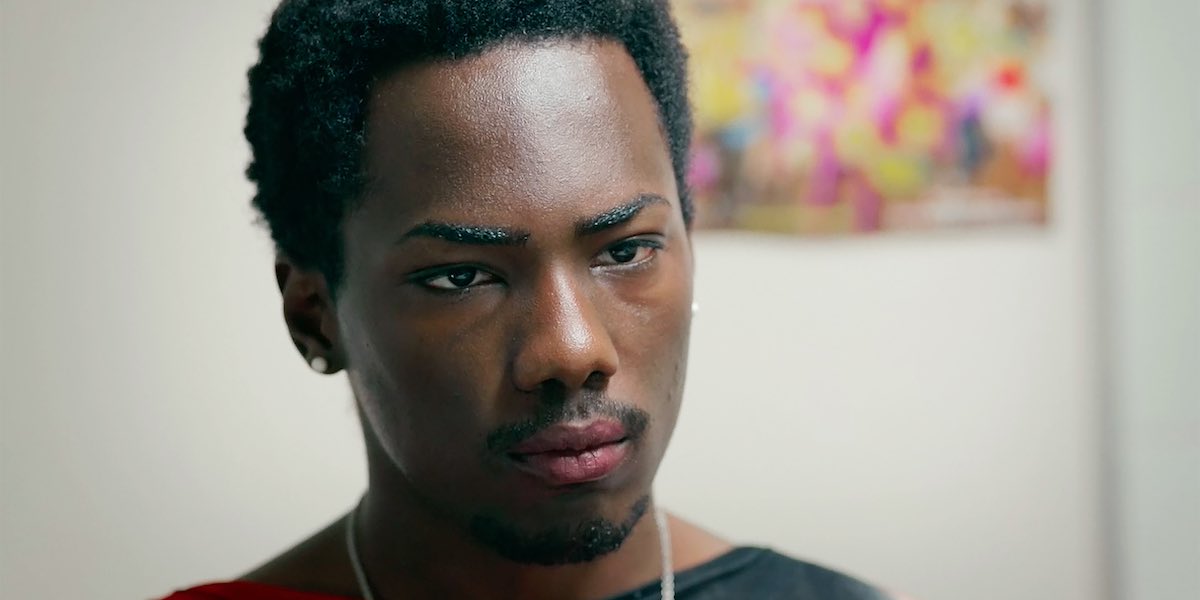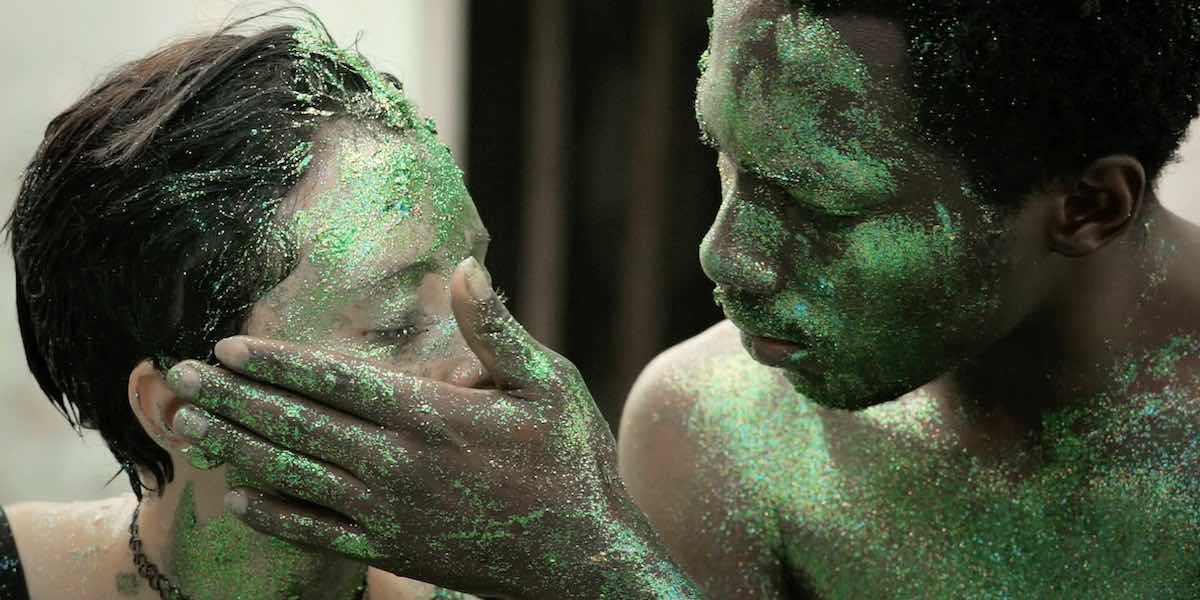Love is Who I Am
(Sou amor)
André Amparo, Cris Azzi / Brazil / 2023 / 91 min




CineCeará Ibero-American Cinema Film Festival
Best ActingQueergestreift Film Festival
Pricing
Related Films
 Alice Junior(Alice Júnior)Gil BaroniAlice Júnior is a carefree, spoiled trans YouTuber with everything she could ask for: an apartment in a cool beach town, a loving dad, her own advice ...
Alice Junior(Alice Júnior)Gil BaroniAlice Júnior is a carefree, spoiled trans YouTuber with everything she could ask for: an apartment in a cool beach town, a loving dad, her own advice ... Bixa TravestyKiko Goifman, Claudia PriscillaThe female trans*body becomes a political means of expression in both public and private spaces. The black, transgender singer Linn da Quebrada ...
Bixa TravestyKiko Goifman, Claudia PriscillaThe female trans*body becomes a political means of expression in both public and private spaces. The black, transgender singer Linn da Quebrada ... Drag Invasion(Invasión drag)Alberto CastroIn 2017, Lima saw a wave of RuPaul’s Drag Race stars perform to sold-out crowds month after month. What started as pure entertainment soon turned ...
Drag Invasion(Invasión drag)Alberto CastroIn 2017, Lima saw a wave of RuPaul’s Drag Race stars perform to sold-out crowds month after month. What started as pure entertainment soon turned ... Blooming on the Asphalt(Germino Pétalas No Asfalto)Coraci Ruiz, Julio MatosAs Jack starts his gender transition process, Brazil is plunged into a wave of extreme conservatism. For five years, we follow the transformations in ...
Blooming on the Asphalt(Germino Pétalas No Asfalto)Coraci Ruiz, Julio MatosAs Jack starts his gender transition process, Brazil is plunged into a wave of extreme conservatism. For five years, we follow the transformations in ... My Emptiness and I(Mi vacío y yo)Adrián SilvestreDirector Adrián Silvestre partners with co-writer and lead actress Raphaëlle Perez to create a colorful, layered portrait of a life in flux. Working in ...
My Emptiness and I(Mi vacío y yo)Adrián SilvestreDirector Adrián Silvestre partners with co-writer and lead actress Raphaëlle Perez to create a colorful, layered portrait of a life in flux. Working in ...Synopsis
Portuguese with English subtitles
With FLIP, Juan Queiroz, Rejane Faria, Eduarda Fernandes
Love Is Who I Am follows Robson, a young man who, after a traumatic experience in his hometown, seeks refuge with his affectionate grandmother in Belo Horizonte. Within her care, he searches for acceptance and the freedom to embrace his true identity. Yet, in a society marked by prejudice and homophobia, Robson confronts profound struggles to belong while navigating the turbulent terrain of self-discovery.
Through lyrical cinematography and a sensitive exploration of inner conflict, co-directors André Amparo and Cris Azzi illuminate themes of resilience, sexuality, and the transformative power of love. More than a story of survival, the film offers a nuanced portrait of LGBTQ+ life in contemporary Brazil, inviting reflection on the intersections of identity, family, and social justice.
Related Subjects
About the Director
André Amparo is a director, screenwriter, and producer of documentaries, TV series, features and short films, video art, music videos and video installations. Winner of the Telly Awards (2020), pre-nominated for the Emmy Awards (2020) with the doc series Babel SP (2019, HBO). Creator and director of the fiction series Love is Who I Am (10 episodes/30 min). Prodav TVs Públicas winning project, in partnership with director Cris Azzi. Shown by TV Cultura, Rede Minas and TVE Bahia. His works have been shown on HBO, CNN, Al Jazeera, Bloomberg, TV Cultura, Canal Futura, Rede Globo, Canal Brasil, MTV, and others. They have also been presented in more than 40 countries, MoMA (NY), Center Georges Pompidou, Palais de Tokyo (Paris), Niigata Fine Arts Museum (Japan) and Instituto Artes Alameda (Mexico City). He has a degree in Social Communication from UFMG with specialization courses in the USA, France and the Netherlands.
Cris Azzi is a director, producer and screenwriter. He is a Social Communication Graduate from the Faculty of Communication and Arts at PUC-MG. He worked for more than a decade as assistant director over 20 feature films and TV series. He has worked with reknown filmmakers such as Karim Ainouz, Anna Muylaert and Paul Leduc. His first film as director is the doc Sumidouro (2007), presented at É Tudo Verdade Festival. His second doc, O Dia do Galo, co-directed with Luiz Felipe Fernandes, was the winner of the popular jury at the Tiradentes Film Festival in 2015. His first feature-length work was the episode film Any Flight, part of the film 5 Fractions of an Almost Story. Released in 2007, the film was shown at the Rio Festival, Mostra Internacional de SP, Mostra de Cinema de Tiradentes, Chicago Latino FF, Cine PE (special jury award, best art direction), Brazilian Film Festival (special jury award, best script). In 2023, directed is first solo fiction, Luna, also co-directed with Andre Amparo Love is Who I Am.
Press
“One of the greatest merits of Sou Amor is its ability to synthesize the idea of sexual fluidity among today's youth, suggesting, in the film, that it does not establish a determining self-definition regarding the orientation of each of them.” – Luiz Joaquim, Cinema Escrito
“FLIP is a powerful presence on stage, someone who gets the job done (with excellence) by representing a person affected by the perversity of a world that does everything to erase his gay, black and gender identity-questioning existence.” – Marcel Müller, Papo de Cinema
Notes on the Film
“The foundations that support Love is Who I Am emerged from conversations with gynecologist Ms. Karine Ferreira (1979-2022), a doctor from the Brazilian public health service who experienced many stories of children and adolescents in their journeys of discovering sexuality and its infinite possibilities.
Reports by a doctor who often saw herself as a friend, listener, and advisor to a wide group of patients over many years, brought information about issues faced by young people and their families at a very special stage in life. The meeting between Dr. Karine’s reports and the challenge of transposing a set of stories into the audiovisual universe, with care and responsibility, made us delve into themes common to most contemporary young people, whether Brazilian or not – relationships, conflicts, love, affections and issues linked to gender identity and sexual orientation in times of intolerance, hatred, discrimination, racism, sexism and violence.
Love is Who I Am presents circumstances in which sociability and the limits of individual freedom come into conflict, emphasizing the importance and role of young people in the formation of a new collective, capable of overcoming prejudices and creating space for relationships between equals and different people to be valued and respected.
Love Is Who I Am is a film based on love, care, and commitment to teenagers. Addressing topics related to generations very different from the one we are a part of is a risky decision that demands great responsibility. We decided to take that risk, and we are very happy with the result we managed to achieve.
Love is Who I Am has the power to touch people in a wide range of aspects, sparking discussions and bringing to the center of attention a set of issues that are part of the daily lives of a large number of people from the most varied places, from the most varied origins, with the most varied life stories.”
– André Amparo, Co-Director
“In 2014, I found myself crying in front of an article that told of the death of a 17-year-old Brazilian girl who took her own life after having a leaked sex video on social media. In the farewell letter, she apologizes to her mother. Nine years later, after finishing Love Is Who I Am, I still wonder where the inmost place in this story that moved me to the point of making a film with that uneasiness as a starting point. Twenty years older than this generation, I felt there was only one way to be honest with the development of the story: listening. And I began to exercise listening in conversations with the young.”
– Cris Azzi, Co-Director